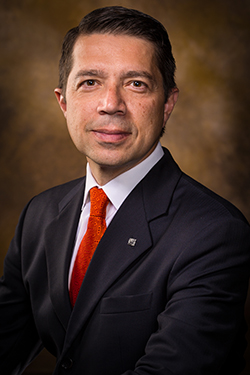
FAYETTEVILLE, Ark. — Athletes and the military have used color charts to track hydration levels for years, and a new study in the European Journal of Nutrition by a U of A researcher found the same method of self-assessment is effective for children.
Stavros Kavouras, a leading expert in hydration and associate professor in the College of Education and Health Professions, along with seven collaborators, including Evan C. Johnson, U of A postdoctoral fellow, tested whether the 8-point urine color scale was a valid method for children aged 8 to 14 years old to assess their own hydration levels.
Their findings, published this spring, found that not only does the urine color scale apply to hydration levels in children, but that children are able to accurately use the chart to determine their own hydration levels.
“The establishment of an acute measurement tool would give an anchor to allow children to be more aware of their hydration status and to improve hydration practices,” Kavouras said.
A study in the American Journal of Public Health this month found that half of American children are inadequately hydrated, with boys showing the highest levels of dehydration.
“The need for valid hydration assessment within children is apparent because both U.S. and European children have been observed to fall short of daily water recommendations,” Kavouras said.
Mild dehydration in children has been linked to reduced cognitive functioning and is associated with poorer school performance in children.
About the College of Education and Health Professions: Preparing high-quality, effective teachers and educational leaders is a top priority of the College of Education and Health Professions at the University of Arkansas. This emphasis on excellence dates back to the opening of the university in 1871, when a teacher-education program was established to help the state grow and thrive. The college is unique because it focuses on two very important areas — education and health. The college prepares teachers for all levels of public school, school administrators, school counselors, school researchers and policymakers, and special education teachers. It also prepares adult educators and professionals for higher education. On the health side, the college prepares nurses, speech-language pathologists, health educators and administrators, recreation professionals, rehabilitation counselors and human performance researchers.
About the University of Arkansas: The University of Arkansas provides an internationally competitive education for undergraduate and graduate students in more than 200 academic programs. The university contributes new knowledge, economic development, basic and applied research, and creative activity while also providing service to academic and professional disciplines. The Carnegie Foundation classifies the University of Arkansas among only 2 percent of universities in America that have the highest level of research activity. U.S. News & World Report ranks the University of Arkansas among its top American public research universities. Founded in 1871, the University of Arkansas comprises 10 colleges and schools and maintains a low student-to-faculty ratio that promotes personal attention and close mentoring.
Topics
Contacts
Stavros Kavouras, associate professor, Health, Human Performance and Recreation
College of Education and Health Professions
479-575-5309, kavouras@uark.edu
Amy Schlesing, director of science and research communications
University Relations
479-575-3033, amys@uark.edu